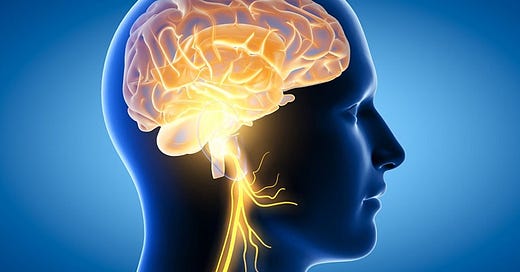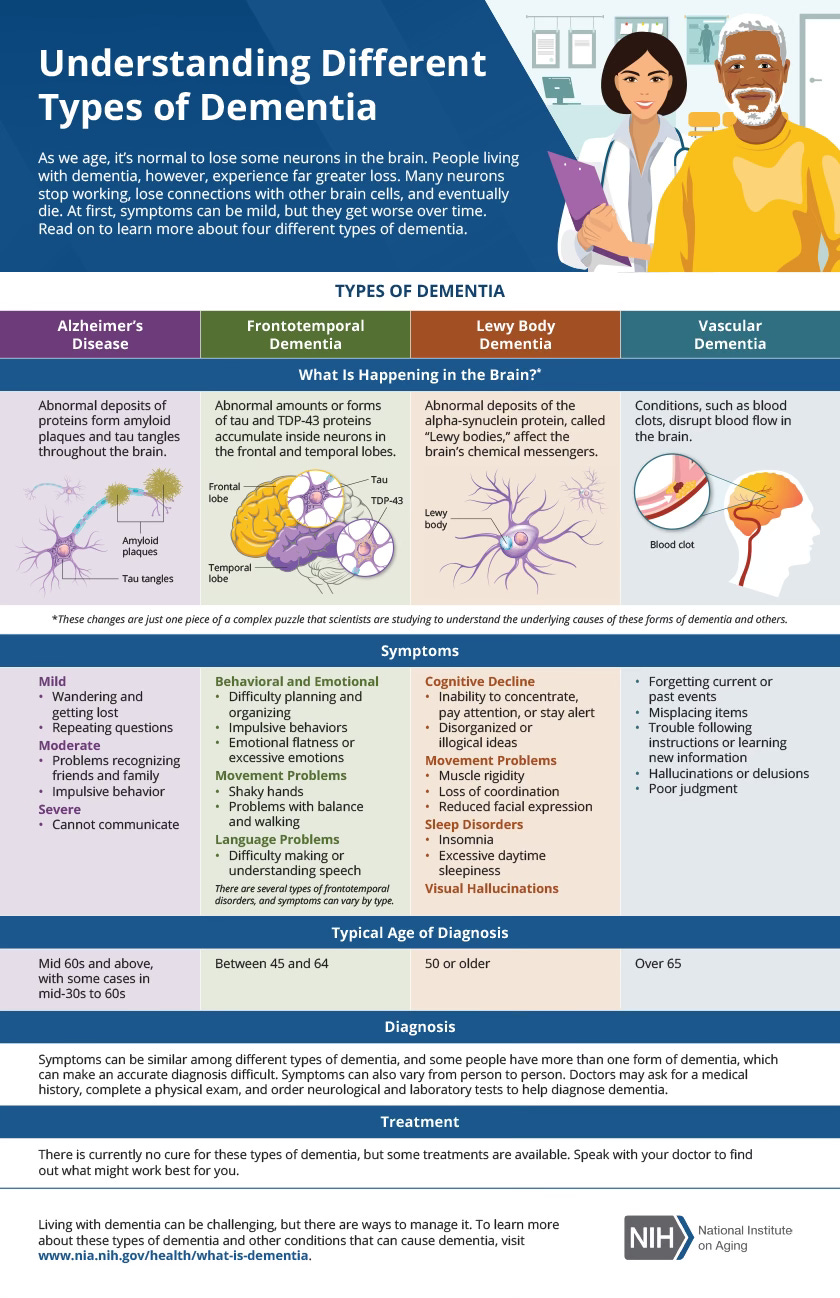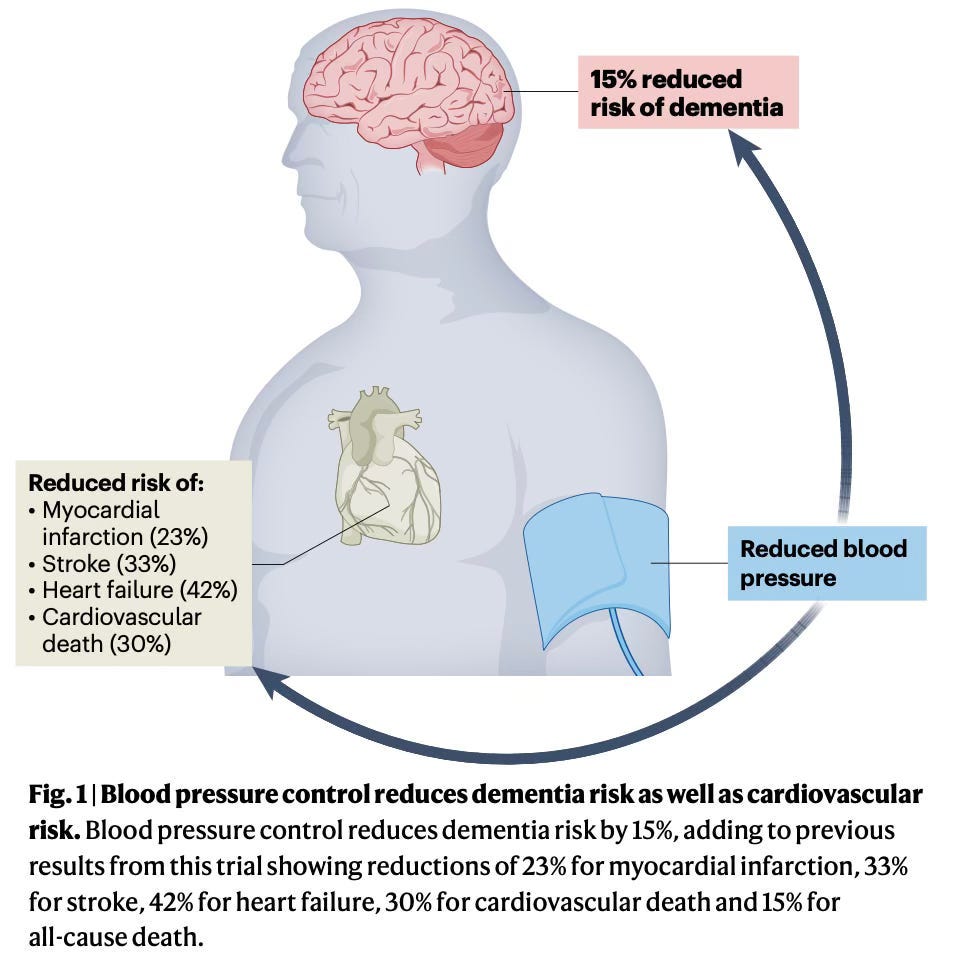UPDATED: June 14, 2025
Welcome to the Healthy Living Is Good Medicine Newsletter, a totally free, health education publication covering a wide variety of topics, with original articles intended to help people lead healthier and more fulfilling lives.
This newsletter is mostly about different aspects of healthy lifestyles and how they can potentially impact people’s health and longevity. I am NOT trying to sell any dietary supplements, herbal remedies, alternative treatments, or any “health secrets” or programs claiming to increase people’s longevity. However, our yearning for immortality has coupled with pseudoscience to create an enormously profitable marketplace, and a trap for the unwary.
In my newsletters, I am simply sharing the best information I’ve been able to gather about preventive medicine and the ways in which “healthy living” (in all of its complexity) can potentially decrease the risk for developing some of the more common chronic illnesses that shorten people’s lives. In contrast to efforts to increase one’s lifespan, regardless of its quality, my emphasis is on increasing health-span, the number of years during which we are relatively healthy, and our enjoyment of life is not limited by illness or infirmity.
The information that I present here is based upon the currently available, credible scientific evidence. That’s why I make an effort to keep these articles updated. That said, readers will still need to keep in mind that almost all studies of lifestyle modifications and their impacts upon people’s health are observational, and therefore cannot demonstrate cause-and-effect relationships between interventions and outcomes.
Studies that employ the “gold standard” of randomized, placebo-controlled, clinical trials are, more often than not, poorly done. So, what we have is, at best, a collection of circumstantial evidence that needs to be viewed with the scientific skepticism that’s an important aspect of critical thinking, along with knowing who to trust online.
While the future of longevity research seems promising, it should be viewed with some reserve and a lot of patience, until studies are peer-reviewed and bonafide experts have weighed in on their findings. Accept the uncertainty, and question all claims, especially those that are being hyped by mass media and online influencers. Wait until safety and efficacy have been firmly established, before incorporating any new approach into your lifestyle. Remember medicine’s fundamental dictum, “First, do no harm.”
Some Very Scary Illnesses
Sometimes, an illness can be so frightening that we’d rather not know about it. As an impressionable child, I came across a nursing magazine with graphic depictions of cancers that basically freaked me out. That experience quite likely discouraged me from becoming a doctor, and it wasn’t until I was much older than most medical students that I accepted my destiny.
It turned out that dealing with other people’s cancers wasn't that difficult, compared to my being diagnosed with a subcutaneous sarcoma, a cancer that required multiple surgeries, seemingly endless rounds of radiation therapy, and an anxious five years of follow-up tests, until it was pronounced cured. I am one of the lucky ones.
During my studies as a marine biologist, I was willing to dive in shark-infested waters, but found parasitic infections and tropical diseases a lot more scary. I wasn’t able to forget a very close call with mosquito-borne viral encephalitis that I had contracted in the Bahamas, as well as the emergency evacuation and aggressive treatment I received.
In preparation for a six-month sojourn in the malarial regions of East Africa, the specialists at London’s Hospital for Tropical Medicine gave me prophylactic drugs and vaccinated me against other tropical diseases. Fortunately, that was a trip from which I emerged unscathed.
My life continued to offer ample opportunities for me to face my fears. As for tropical diseases, I eventually became the resident physician at Kalaupapa, on the island of Molokai. Taking care of leprosy patients as I neared the end of my career in clinical practice, I was finally able to lay those fears to rest.
I retired from the front lines of medicine long before the COVID-19 pandemic, during which many heroic physicians became infected while treating patients, and died as a result. I’m now concerned that the next pandemic will be even worse, especially since the reins of government were handed over to science deniers, and alternative medicine proponents have been appointed to positions that are supposed to protect the public’s health.
Psychological Trauma
As a doctor, the things that gave me nightmares weren’t scary or gruesome medical conditions. They were the heartbreaking human encounters, such as having to tell the parents of a 14 year old boy that their son was brain dead as a result of his helmetless motor scooter accident, and then taking him off the ventilator so the rest of him could die.
To get an inkling about the psychological traumas that many physicians routinely face, I recommend watching the HBO series, “The Pitt.” Season one covers the day shift in an already busy emergency department suddenly faced with a mass casualty event. It realistically portrays the emotional toll that life-and-death situations can have upon healthcare providers.
The show stimulated buried memories and brought my unresolved grief to the surface, but nothing in my medical career could have prepared me for the daily anguish of watching a loved one being progressively robbed of their previously impressive intelligence, sparkling personality, and endearing human qualities by the relentless onslaught of Alzheimer’s disease (AD).
This disease is so terrible that most people would rather pretend it doesn't exist, myself included. And, we might be able to do so, until it strikes someone close to us, or we begin having issues with our own cognitive health. We might first notice difficulty with thinking clearly, learning new things, or remembering recent events, which are among the early warning signs of dementia.
As a physician, I had neither an understanding of this disease, nor the qualifications to help patients who had it. As a result, I've had to undergo a crash course in the subject, after my loved one's mild cognitive impairment rapidly transformed into full-blown dementia. I’ve been sharing my ongoing learning experience through a previous article on the subject:
Combating Alzheimer’s Disease
This disease won't be going away anytime soon, and it is essential that our government funds the research needed to develop effective treatments and pursue a possible cure. Those efforts have been crippled by the Trump administration’s assault on science and conventional medicine.
Alzheimer's prevalence is increasing as older people, who are living longer, make up a growing percentage of the population. This is creating a significant public health problem, but it’s not simply a matter of people living longer. The increase in AD's prevalence reflects a convergence of aging demographics, earlier diagnosis, a rise in chronic conditions such as obesity, type 2 diabetes, hypertension, and cardiovascular disease, plus environmental and lifestyle risk factors, including exposure to toxic chemicals.
Dementia Isn’t Inevitable
“Senile dementia” is an outdated term that suggests memory loss and cognitive decline are an ordinary part of aging, but that is not necessarily so. Some changes in cognitive abilities are common as people get older, but dementia is a diagnosis with a specific underlying cause attached to it. While most cases of dementia do occur in people aged 65 and older, the disease can also affect younger individuals.
Abusing your brain can increase the risk of dementia. Traumatic brain injuries are a common cause among athletes in contact sports. Toxic substances such as alcohol can cause brain damage, according to a recent population-based autopsy study. Even moderate drinkers had a significantly higher risk for hyaline arteriolosclerosis than non-drinkers. A relationship between alcohol consumption, vascular health, and cognitive decline should come as no surprise.
Alzheimer’s disease accounts for about two-thirds of all dementia cases. Vascular dementia, due to restricted blood flow to the brain, is diagnosed in around 17 percent of people with dementia. Less common types include Lewy body dementia, fronto-temporal dementia, Parkinson’s dementia, and mixed.
The metabolic syndrome needs to be recognized and treated with a combination of medications and lifestyle interventions. A retrospective cohort study found that a favorable lifestyle was associated with a lower rate of dementia, even among those who had a high genetic risk. Dr. Topol presents a very optimistic view regarding the prediction and prevention of Alzheimer’s disease:
I’m wondering if the term “prevention” is overly optimistic at this point in time. It is clear that a number of interventions can slow AD’s progress, and if this terminal illness can be kept asymptomatic (or with no more than a mild cognitive impairment) until the person with it dies of something else, in that sense it has been “prevented.”
Newly identified plasma proteins are potential diagnostic biomarkers for the early detection and monitoring of AD progression, and for guiding treatment decisions. Actually preventing or reversing the disease would need to be demonstrated by both cognitive testing and changes in the biomarkers, particularly in those individuals with a genetic predisposition to Alzheimer’s. That is something for which I have not yet seen convincing evidence.
At this point in time, it is clearly worth hedging your bets as much as possible. If you’re the least bit concerned about your own risk for this devastating disease, this would be an excellent time to reconsider your lifestyle and take immediate steps to ensure that it adequately addresses the modifiable risk factors. Here are some suggestions:
1. Move Your Body
Regular physical activity is one of the best defenses against cognitive decline. Exercise boosts blood flow to the brain and encourages new brain cell growth and neuroplasticity, the brain's ability to change and adapt throughout life. Aim for 150 minutes of moderate aerobic activity per week, such as brisk walking, dancing, or swimming. Add strength training twice a week, and include balance and stretching exercises.
2. Eat to Protect Your Mind
What’s good for the heart is also good for the brain. The MIND diet, a hybrid of the Mediterranean and DASH diets, has been linked to lower Alzheimer’s risk. Focus on leafy greens, berries, nuts, olive oil, whole grains, fish, and legumes. Limit red meats, butter, sugar, and highly processed foods. Make pure water your beverage of choice, and avoid that dreary old neurotoxin, alcohol, along with the other commonly abused drugs.
A 2016 meta-analysis of 21 cohort studies found that consuming fish with high amounts of the omega-3 fatty acid DHA was associated with a significantly reduced risk of dementia, but there is no evidence that taking omega-3 supplements can lower dementia risk. It’s important to choose the right kinds of fish and best cooking methods, explained here.
For more information about eating in ways that benefit brain health, I invite you to download my recently updated eBook, “Rx for Healthy Eating.” It is now available from Barnes & Noble, the Google Play Bookstore, and Amazon’s Kindle Books. It costs less than a burger and fries, and won’t clog up your arteries.
3. Keep Your Brain Busy
Life-long learning builds cognitive reserve, which is your brain’s backup system. Challenge your brain as if it is a muscle. Write a newsletter, or make videos. Learn a new language, do art projects, or take up playing a musical instrument. Play strategic games, such as chess or bridge. If you can’t find a partner, play them online. Be willing to try new things; nourish your brain with novelty.
A longitudinal cohort study of 1,903 older people without dementia, with an average follow-up period of 6.8 years, suggests that a cognitively active lifestyle in old age may delay the onset of dementia due to Alzheimer’s disease for as much as five years. In any case, keeping mentally active and learning new things certainly can’t hurt.
Singing, listening to music, or making music all promote brain health, and a biological mechanism has been proposed. Music can have significant positive effects on people with Alzheimer's disease. Even in advanced stages, when other abilities have declined, musical engagement often remains accessible and beneficial. Music therapy is increasingly recognized as a valuable non-pharmacological intervention in dementia care, with effects often lasting beyond the music session itself.
4. Stay Social
Isolation increases the likelihood of developing dementia, and loneliness can present a risk that's similar to obesity or lack of physical activity. Our emotional and physical connections with others have a profound impact upon our nervous system. Even casual interactions can boost our mood and jog our memories. So, it's important to stay in touch with friends and family. You can also join clubs, volunteer, or take classes.
5. Sleep Soundly
During deep, restorative sleep, the brain clears out wastes that have built up during the day. Longstanding inadequate sleep can increase the accumulation of amyloid plaques, a hallmark of Alzheimer’s disease. Maintain a consistent bedtime, and limit screen time at night. Go to bed early, and aim for about eight hours of quality sleep each night. Sleep apnea is strongly linked to cognitive decline, and should be treated if present.
6. Manage Chronic Health Conditions
Brain health requires an adequate blood flow to the organ. What damages your arteries also harms your brain. Consequently, it is important to monitor and control blood pressure, cholesterol, and blood sugar. An LDL-cholesterol level below 70 mg/dL is associated with a 26 percent risk reduction for all-cause dementia, and a 28 percent lower risk of dementia associated with Alzheimer’s disease, according to a recent study. Statin use further decreases that risk, with protective effects that extend beyond cholesterol-lowering.
Pre-diabetes needs to be diagnosed early and should be treated aggressively, initially with lifestyle modifications that include diet and exercise, plus an off-label prescription for metformin if those changes don’t produce significant results in lowering glycated hemoglobin A1c. Heart health and inflammatory markers should also be monitored.
Past research had shown a strong link between untreated hypertension and cognitive decline in older adults. A 2025, large-scale randomized, controlled effectiveness trial found that blood pressure reduction in people with uncontrolled hypertension resulted in a 15 percent reduction in the risk of all-cause dementia, along with reduction in cardiovascular events.
7. Deal with Stress
Living with chronic stress is like driving a car with one foot on the accelerator and the other foot on the brakes; things are going to wear out a lot sooner. Long-term stress harms the hippocampus, the brain’s memory center. Practice stress-reduction techniques, which include mindfulness, meditation, deep breathing, yoga, and tai chi. Get outside and take a walk in nature. Prioritizing fun and relaxation is essential, so build playtime and rest periods into your daily schedule.
8. Have a Sense of Purpose
Doing things that you find meaningful engages more parts of your brain and increases its activity. People with a strong sense of purpose and direction tend to have better cognitive outcomes. If we are lucky enough to find meaning in the work we do, retirement can be particularly challenging.
Even small routines and responsibilities can make a big difference. Try mentoring, gardening, creative projects, or caregiving. Or, you can do what I do: Write a newsletter. You can also keep a journal, or start an online blog. It doesn’t have to be a big project for it to matter.
9. Protect Your Head and Get Vaccinated
Head injuries, blast shock waves, and even mild concussions can damage the brain. Always wear a high-quality helmet when engaging in activities that carry a risk of head trauma.
COVID-19 infections can affect the brain, so get up-to-date with the latest vaccine, and mask up in high-risk settings. Recent findings suggest that shingles vaccination could reduce the risk of dementia.
Parting Thoughts
Dr. Stickler does an excellent job of breaking down the public health crisis, risk factors, and dementia prevention strategies. However, I disagree with him about the Bredesen Protocol™ for the diagnosis and treatment of Alzheimer’s disease. Dr. Bredesen has been criticized by Alzheimer's organizations for offering the false hopes about reversing the disease.
As far as I know, Dr. Bredesen’s published reports, based upon limited, anecdotal evidence, lack objective peer review by reputable journals, and make claims that have not been independently validated by other research. Because of the financial motives by Dr. Bredesen and physicians known as “ReCODE Practitioners” who implement his protocols, any claimed successes should be viewed with considerable skepticism.
That said, I take the position that there are some things that can be done to delay the onset of dementia and reverse mild cognitive impairments due to causes other than Alzheimer’s. Even if you have a genetic predisposition for AD, any medical and lifestyle interventions that delay Alzheimer’s onset and slow its rate of progression can be beneficial. However, if you die before AD is diagnosed, does that really mean the disease was prevented?
In any case, as a champion of healthy living, I would encourage you to start developing a lifestyle that supports overall health and brain resilience as early as possible, so you can increase the odds for keeping your brain as healthy as it can be, for as long as it can. Prevention requires a long-term investment in how we think, feel, and live, but it can pay big dividends in terms of dementia risk reduction and an increased health-span.
The National Institute on Aging has more information about optimizing brain health and clinical trials for the treatment of dementia. It is never too soon to begin changing your life for the better, nor too late for those changes to make a difference. Just do it.
― ― ―
Posts can be updated at any time. Please check back here again to find the most up-to-date version of this article.
You can find many more articles about Healthy Living in my Post Archive.
I encourage you to share my Website Link with others via your social media accounts. You can help your friends and followers become healthier by suggesting that they subscribe to my totally free Newsletter.







